FCC Announces Plan to Repeal Net Neutrality
Ajit Pai, the agency's Trump-appointed chairman, has made undoing the government's net neutrality rules one of his top priorities.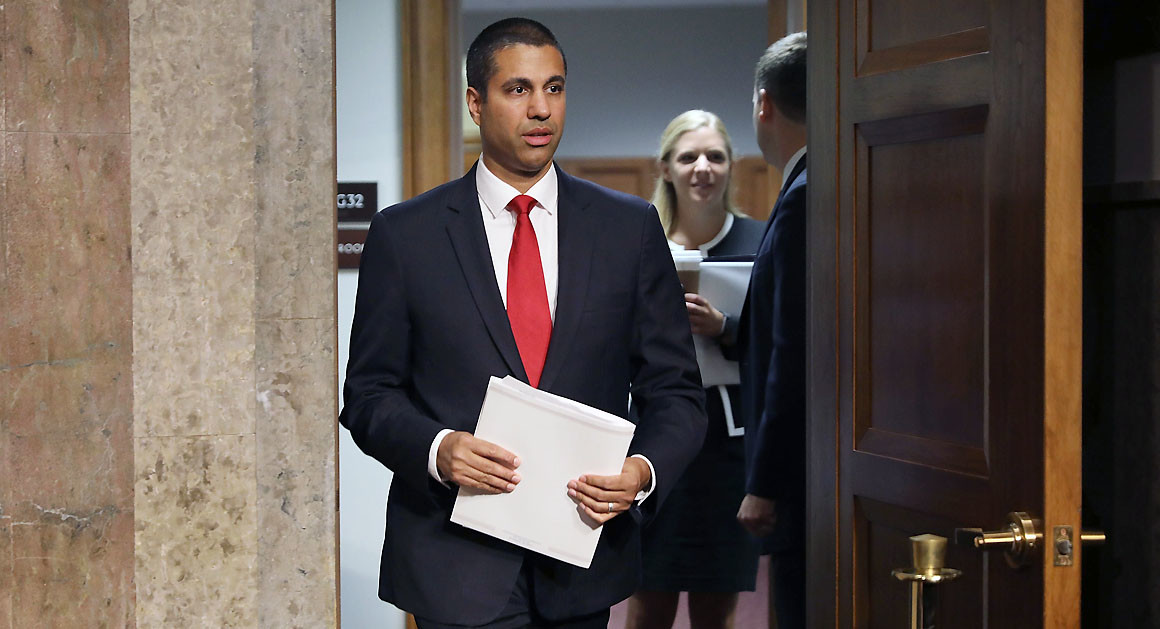 Federal Communications Commission Chairman Ajit Pai. (Chip Somodevilla / Getty Images)
Federal Communications Commission Chairman Ajit Pai. (Chip Somodevilla / Getty Images)
In a reversal of Obama-era rules, the Federal Communications Commission announced Tuesday that it has developed a plan to gut net neutrality. Current rules prevent internet service providers from giving preference to certain kinds of traffic or charging extra fees for higher internet quality, guaranteeing that everyone has equal access to the internet. The FCC plan will be put to a vote at the agency’s Dec. 14 meeting, where it is expected to pass, with Republicans holding three of the commission’s five seats.
The New York Times reports :
The clear winners from the move would be telecom giants like AT&T and Comcast that have lobbied for years against regulations of broadband and will now have more control over the online experiences of American consumers. The losers could be internet sites that will have to answer telecom firms to get their content in front of consumers. And consumers may see their bills increase for the best quality of internet service.
“Under my proposal, the federal government will stop micromanaging the internet,” [FCC Chairman Ajit] Pai said in a statement. “Instead, the F.C.C. would simply require internet service providers to be transparent about their practices so that consumers can buy the service plan that’s best for them and entrepreneurs and other small businesses can have the technical information they need to innovate.”
The Washington Post elaborates on how the rollback would benefit internet providers:
Lifting the rules will allow Internet providers to experiment with new ways of making money. In recent years, some broadband companies such as AT&T have tried offering discounts on Internet service to Americans so long as they agree to let the company monitor their Web browsing history, for example. Other companies such as Verizon have exempted their own proprietary apps from mobile data caps, in a bid to drive user engagement. The practice, known as zero-rating, was criticized by the prior FCC as a potential violation of net neutrality principles, but Pai rescinded his predecessor’s findings upon taking office.
Under President Barack Obama, the FCC ruled that quality internet access should be treated as a public utility, as are phone and electric services. This rule was upheld in federal court in 2016, and the courts declined a rehearing of the case in May. But FCC Chairman Ajit Pai, a Donald Trump appointee, has proposed to go back to classifying broadband as an “information service,” which would make regulations harder and benefits internet service providers at the expense of content providers such as Google or Netflix. Google said in a statement, “The FCC’s net neutrality rules are working well for consumers, and we’re disappointed in the proposal released today.”
The Washington Post adds:
Former Democratic FCC chairman Tom Wheeler, who drafted the 2015 net neutrality rules and rammed them through despite Republican opposition, called Tuesday’s move “tragic.”
“The job of the FCC is to represent the consumer,” he said in an interview. “Tragically, this decision is only for the benefit of the largely monopoly services that deliver the Internet to the consumer.”
In May, Pai announced that the FCC would entertain a public comment period about net neutrality policy, which led to an uproar from open-internet advocates. John Oliver, the host of an HBO comedy show, established a website, GoFCCYourself.com, to redirect public comments in favor of net neutrality from that site to the FCC’s website. The resulting flood of comments caused the government agency’s site to crash and be out of operation briefly.
Carmen Scurato, director of policy and legal affairs for the National Hispanic Media Coalition, released a statement on the unique threat the rollback would pose to people of color:
“Repealing Net Neutrality is no small matter, especially for Latinos and people of color who already face substantial barriers in getting online, staying online and having high quality Internet. Despite the obstacles, we strive to tell our stories, build businesses, learn, get jobs, express ourselves, and organize online. Today, the Trump FCC is telling Latinos and other consumers that their voices will only be heard as far as their wallets can carry them, by paving the way for paid prioritization. Shifting responsibility for resolving consumer issues to the Federal Trade Commission, which currently lacks the jurisdiction and resources to effectively handle them, is a sad statement of what the FCC stands for today-corporations over consumers.
The FCC has described the net neutrality rollback as a return “to the bipartisan, light-touch regulatory framework under which a free and open Internet flourished for almost 20 years.”
Many Democrats, including Hawaii Sen. Brian Schatz and Terrell McSweeny, who is one of five FCC commissioners, have been outspoken critics of the proposed rollback:
1) The Internet works because the people who charge you for access to it cannot charge different amounts for different content, depending on their commercial interests. You pay the ISP, you get the whole Internet. What the FCC is doing is revoking that rule.
— Brian Schatz (@brianschatz) November 21, 2017
Your support matters…So many things wrong here, like even if @FCC does this @FTC still won’t have jurisdiction. But even if we did, most discriminatory conduct by ISPs will be perfectly legal. https://t.co/HN4GSS5qZo
— Terrell McSweeny (@TMcSweenyFTC) November 21, 2017
Independent journalism is under threat and overshadowed by heavily funded mainstream media.
You can help level the playing field. Become a member.
Your tax-deductible contribution keeps us digging beneath the headlines to give you thought-provoking, investigative reporting and analysis that unearths what's really happening- without compromise.
Give today to support our courageous, independent journalists.
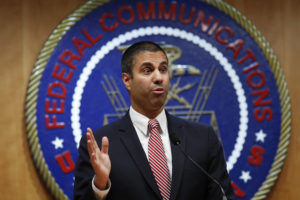
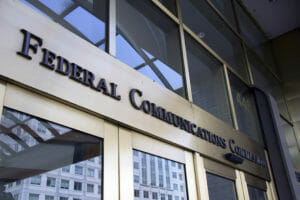

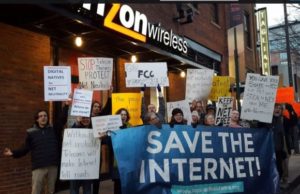
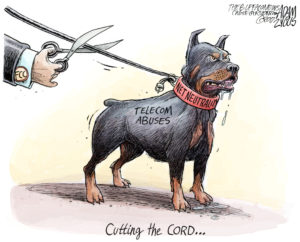
You need to be a supporter to comment.
There are currently no responses to this article.
Be the first to respond.